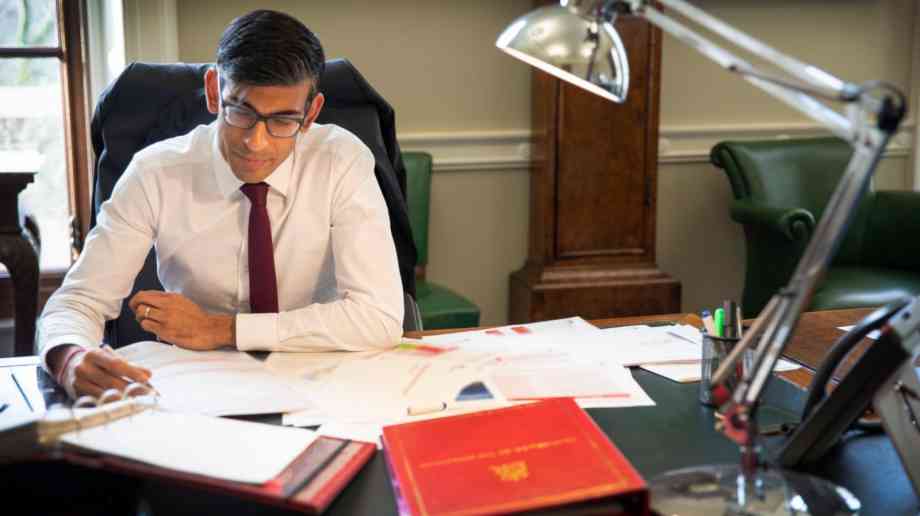Sue Robb of 4Children talks to Julie Laughton and Alison Britton from the Department for Education about the role of childminders in delivering the 30 hours free entitlement.
Rishi Sunak delivers Budget to the Commons

Chancellor Rishi Sunak has pledged a major increase in public spending, with total departmental spending set to increase by £150 billion by 2025.
According to Sunak, the real-terms rise for every government department, at roughly 3.8 per cent a year, highlights how the ‘Conservatives are the real party of public services’. However, the Institute for Fiscal Studies estimates average real-terms annual growth in departmental resource budgets was higher in previous years, above four per cent in 2000 and 2002 under Labour, and 4.1 per cent under the Conservatives in 2019.
The Chancellor also stated that there will be grant funding for local government £4.8 billion, in the ‘largest increase in core funding for over a decade’.
As expected, much was made of the government’s Levelling Up agenda, with Sunak detailing £1.7 billion of funding in the first grants from the Treasury’s Levelling Up Fund, for towns and cities including Stoke-on-Trent, Leeds, Doncaster and Leicester. As part of Levelling Up, the government also said that libraries will be ‘renovated, restored and revived’, and that tax relief on museums and galleries will be extended until March 2024.
Additionally, Sunak will increase investment to support London-style transport across the regions of England, with a further £21 billion to be invested on roads and £46 billion on railways to improve journey times between cities.
An increase in fuel duty will be cancelled, saving motorists £8 billion over five years. After 12 years of freezing fuel duty it will save the average motorist £1,900. On the topic of the cost of living, the Chancellor confirms the national living wage will increase from £8.91 to £9.50 an hour from April.
Other financial and taxation announcements included cutting the taper rate in universal credit from 63p to 55p and increasing the work allowance by £500. This is likely to come into force by December.
Furthermore, schools are to get an extra £4.7 billion by 2024-25, with nearly £2 billion of new funding to help schools and colleges to recover from the pandemic.
Jonathan Carr-West, chief executive of LGIU, said: “The Chancellor’s budget proved more generous than expected for many. Local government will be pleased that a key sector demand has been listened to as we finally have a multi-year settlement that allows for better long term planning for councils.
“Grant increases of £1.6 billion per year for the next three years and a three per cent increase in core spending power, do not undo a decade of cuts but they are a step in the right direction. However, we should never forget that this 3% increase depends on councils taking the political risk of increasing council tax to the maximum permitted extent.
“Social care costs will continue to rise, especially given the announcement of an increase in the minimum wage. That will eat into most, if not all, of a three per cent increase in spending power. And, it’s still far from clear when the benefit of national insurance contribution increases will be felt across social care.
“The wait continues for the government’s much anticipated Levelling Up White Paper. And, for those who believe that levelling up can only succeed in partnership with local government, there was little grounds for optimism in this budget which continues to be allocated through bid funding and regional and sub regional authorities getting the largest chunks of it.
“After over a decade of austerity, local government has learned to take nothing for granted and to read the small print very carefully. Nonetheless, a sector that was braced for more pain will be feeling this afternoon that things could have been worse.”
Company Focus
Located in Bromley, Japanese Knotweed Eradication Ltd has been providing solutions in the treatment and removal of Japanese Knotweed (Fallopia Japonica) for over a decade. During this time we have mastered a repertoire of methods, from herbicidal treatments to landscaping solutions, tailored to address the unique challenges our clients face with this pervasive weed.
Event Diary
UKREiiF has quickly become a must-attend in the industry calendar for Government departments and local authorities.
The multi-award-winning UK Construction Week (UKCW), is the UK’s biggest trade event for the built environment that connects the whole supply chain to be the catalyst for growth and positive change in the industry.
Supplier Profiles
Geo Energy
At GeoEnergy Design, we're on a mission to disrupt the traditional way heating and cooling ha
Latest Features
Professor Harith Alani, director of the Knowledge Management Institute at the Open University explains how AI can be used for good and bad.
Alex Lawrence, head of health & social care, techUK sets out techUK’s Five Point Plan for CareTech.

















